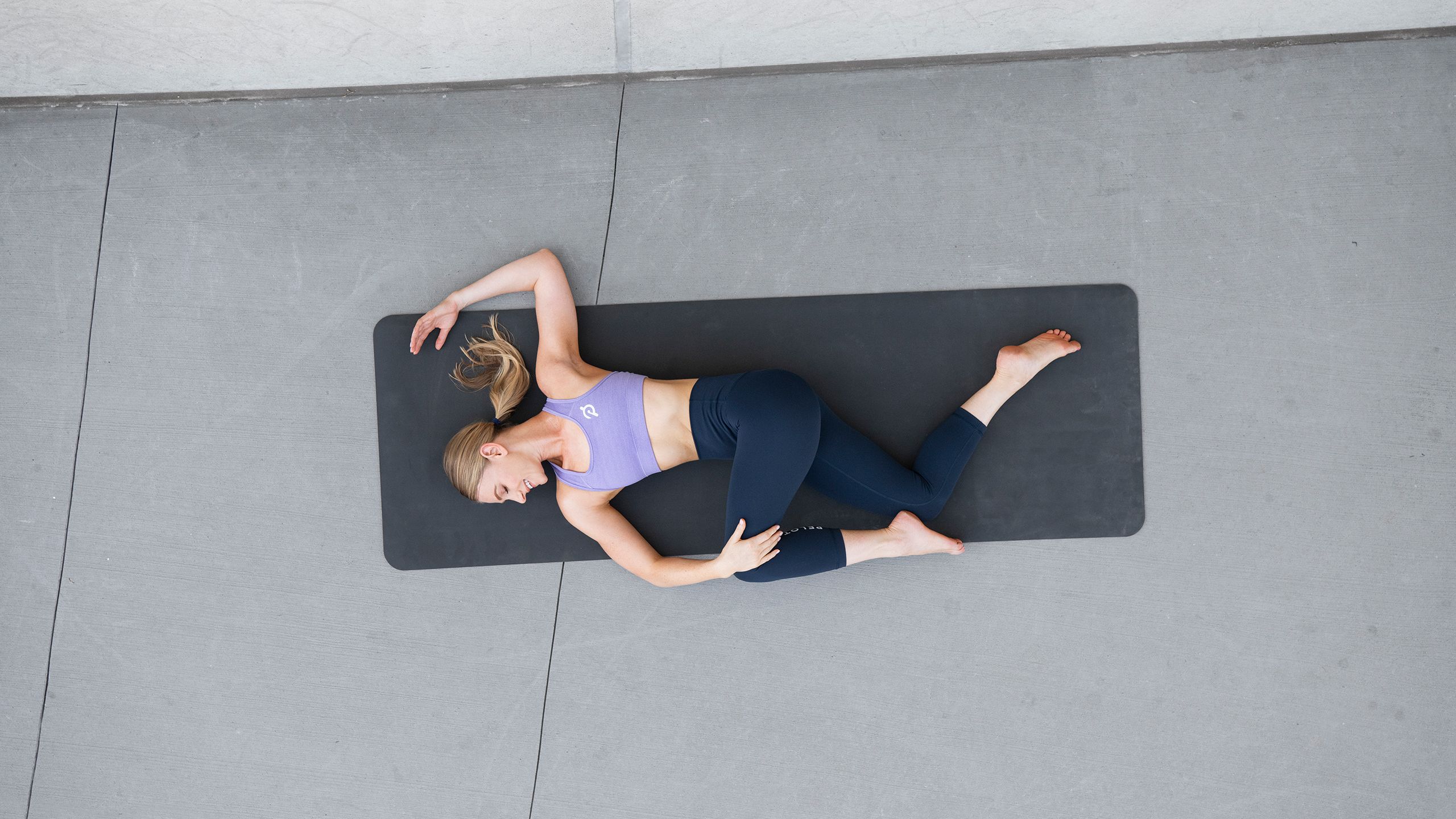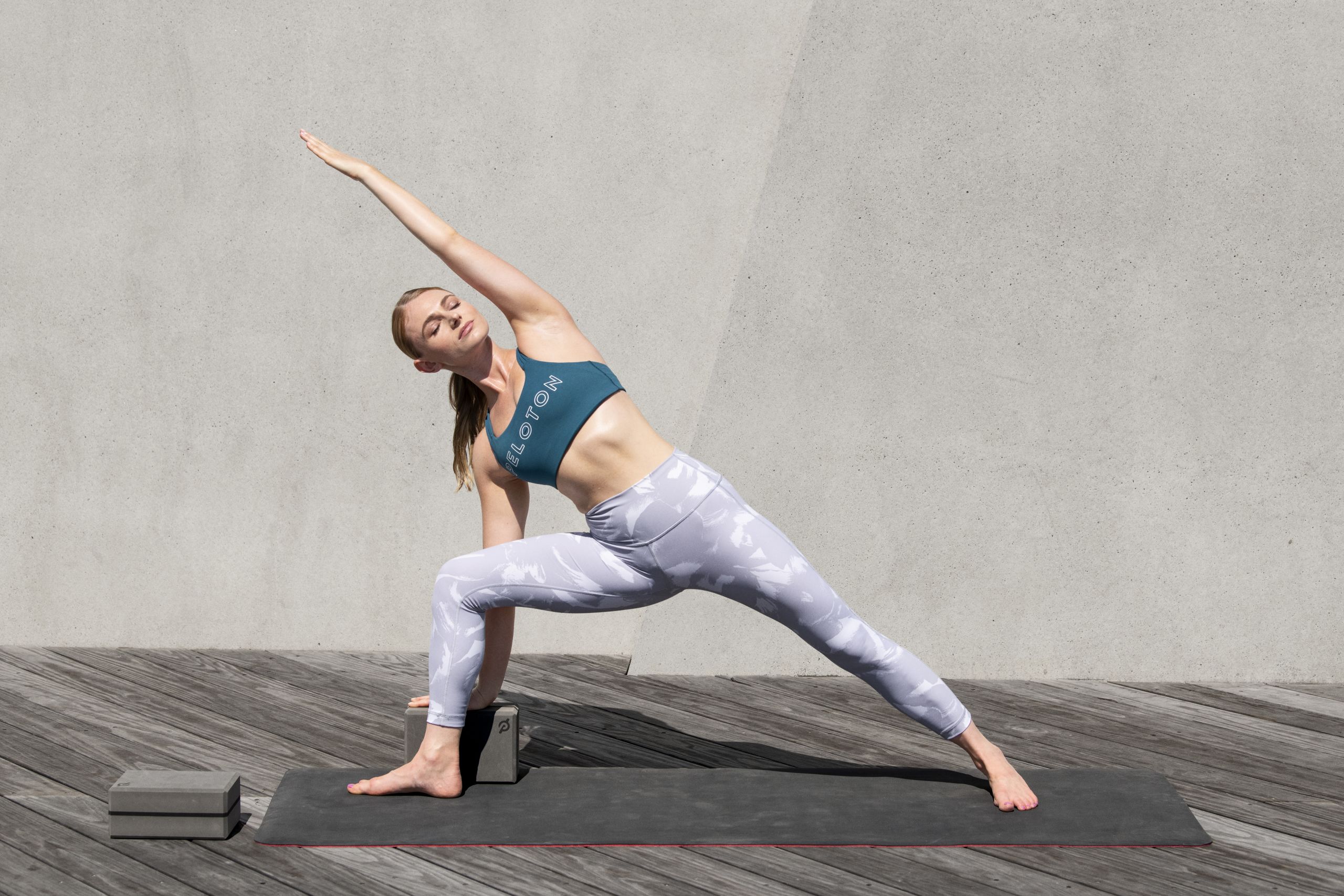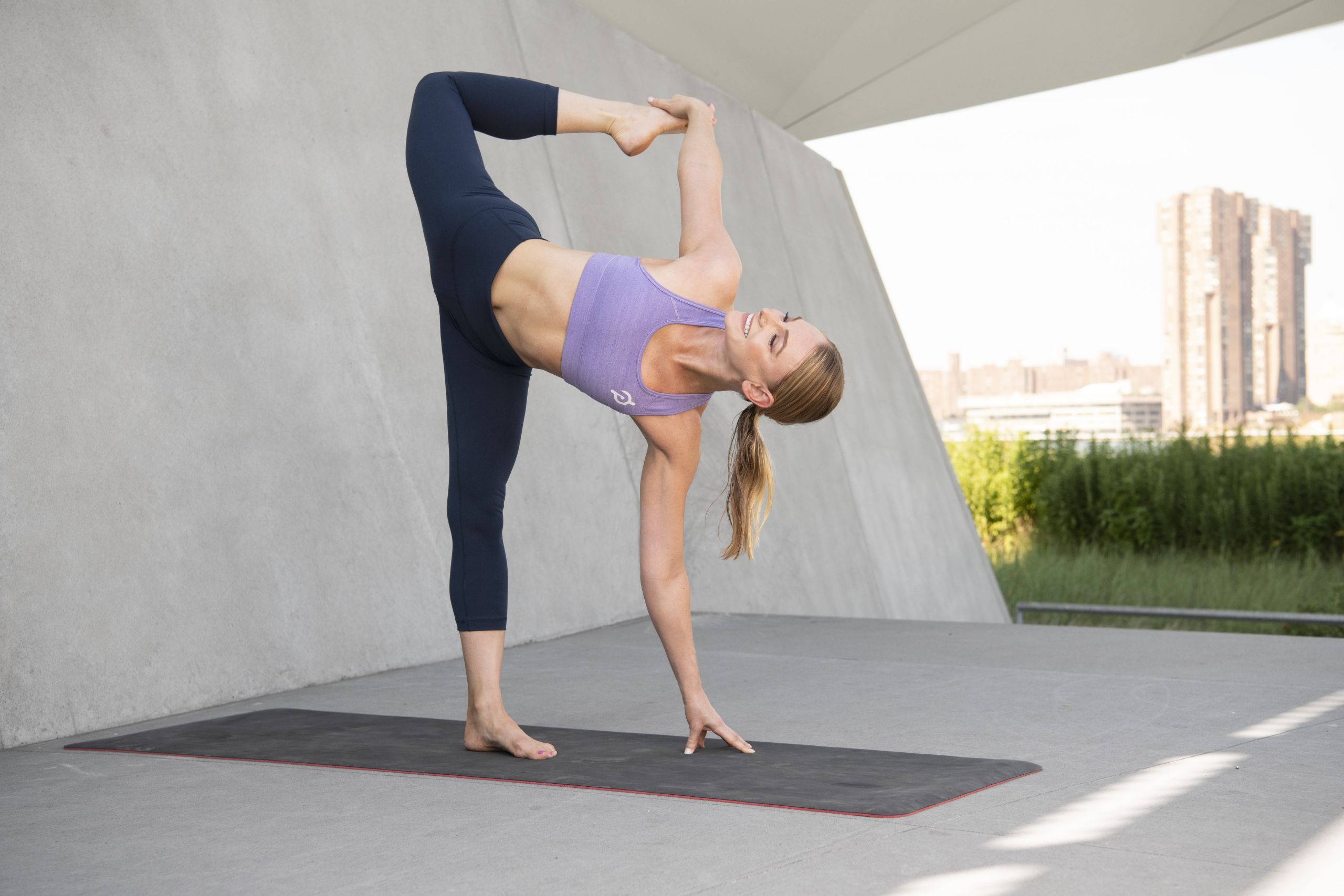
Sweat It Out: The Science Behind Exercise and a Strong Immune System
Sweat is the perfect medicine to help you sniffle less this season.
By Colleen Travers•
How Exercise Supports Overall Physical Health
The Role of Blood Circulation in Immunity
CDC Recommendations and Their Impact
The Importance of Rest Days
Risks of Overtraining and the Concept of Body Intuition
Exercise can be used as a tool in so many aspects of our lives. We use it to get stronger, faster, and more flexible; help us sleep at night and stress less during the day; and build mental endurance (something we all need more of in this chaotic world we live in). But there’s another area of our lives exercise is crucial for: the immune system. Here’s how your workouts—from cycling and running to yoga and Pilates—can keep you from getting sick.
How Exercise Supports Overall Physical Health
Before we dive into exercise and the immune system, let’s take a quick refresher course on how exercise supports your overall physical health. Trust us, it’s all connected.
Exercise is a Whole-Body Approach to Health
“One of the most significant ways that exercise supports the immune system is simply by supporting overall physical health,” says Jaclyn Tolentino, D.O., a board-certified family physician with Parsley Health.
After all, studies have shown that exercise increases blood flow throughout the body, especially to the brain (so if you’ve ever had an “a-ha!” moment while running or felt extra sharp after a workout, you can thank that boost in circulation). Exercise also improves your heart health by optimizing circulation, and research shows activities such as strength training build lean muscle.
And aside from the physical, exercise improves your mental health too. In fact, the endorphins released by your brain after exercise are so powerful, they can help boost your mood, reduce your perception of pain, and reduce stress.
Together, these factors contribute to a strong body both on the outside and inside, and one that is more equipped to fight off germs when they do enter the body.

Taking Time to Sweat Specifically Targets Immune Cells
While exercise is one of the best healthy habits you can adopt overall, there is research that suggests your workouts are strengthening not only your muscles, but the cells that make up your immune system as well.
Research published in the Journal of Sport and Health Science found that 60 minutes of moderate to intense physical activity temporarily boosts the circulation of neutrophils, natural killer (NK), and cytotoxic T cells. “These are the cells of the immune system that help us mount an immune response to invading pathogens like bacteria or viruses,” Dr. Tolentino says. That boosted circulation is important because it allows the immune cells to travel more swiftly, patrolling for potential threats like bacteria and viruses. Even better? This quickening effect can last for as long as three hours after you finish your workout, giving your immune cells even more time to scan for bad germs.
According to BMC Sports Science, Medicine and Rehabilitation, exercise can also trigger the release of cytokines, which are small proteins that play a major role in cell signaling and communication. More communication equals a better chance at detecting and fighting off intruders.
The Role of Blood Circulation in Immunity
This improved circulation may also help the immune system efficiently scan what’s happening inside the body. (Think of it as an internal security guard.) Eventually, this flow can improve surveillance, a.k.a. how the immune system systematically scans the body for signs of infection or injury that would warrant mounting an immune response.
Improved circulation also helps reduce systemic inflammation in the body through three key ways. Remember: Inflammation can lead to conditions like heart disease and type 2 diabetes, so monitoring your inflammation is a key part of protecting your health and immune system long-term.
First, better circulation makes it easy for immune cells to get to the scene of the crime (that is, inflammation) even faster and begin the healing process of reducing inflammation. Think of it as a police car turning the siren on and traffic suddenly cleaving in two.
Second, remember those cytokines we mentioned earlier? Some types of exercise—mostly moderate-intensity exercise, according to research—stimulate the production of cytokines with anti-inflammatory properties.
And finally, regular exercise is associated with a reduction in adipose tissue inflammation. Adipose tissue is a fancy phrase for fat tissue, and it’s known for producing pro-inflammatory molecules. Having too much of this tissue can lead to low-grade inflammation throughout the body, and exercise is one way to reduce that adipose tissue or transform it into lean muscle.
Related Articles
CDC Recommendations and Their Impact
How much do you need to work out to see the connection between exercise and immune system? In general, the CDC recommends 150 minutes of moderate-intensity exercise or 75 minutes of vigorous-intensity exercise weekly. However, there’s no hard and fast rule about how much exercise will directly impact your immune system.
Dr. Tolentino suggests anywhere between 30 to 60 minutes of moderate to vigorous daily activity. “We don't really have a precise understanding of how often someone needs to exercise for optimal immune response,” she says. “But we know that the impact of exercise on the immune system and to your health in general is all cumulative. That means you're going to want to get in some sort of physical activity on nearly a daily basis.”
After looking at the research, we’d also recommend switching your workouts between high-intensity and moderate- to low-intensity. A study from Frontiers of Exercise found that after demanding, high-intensity workouts, the immune system experienced a major boost in activity. In that sense, the workout almost acted as a wakeup call to the immune system, motivating it to become more alert and responsive.
However, another study found that consistent exercise, even if it’s just moderate in intensity, could benefit the immune system. This study specifically looked at older adults, giving comforting evidence that exercise can still be a powerful tool for supporting immunity as we get older—even if you’re not up for five bootcamp sessions a week.
So what’s the ultimate exercise prescription for your immune system? Aim for two or three days of moderate-intensity exercise, like steady-state cycling, swimming, golf, or walking, and one or two days of high-intensity exercise like running, HIIT classes, or interval cycling classes. Supplement with two days of functional strength training, targeting each major muscle group with practical exercises like squats, push-ups, deadlifts, lunges, and planks. All together, that should help protect you from the common cold.

A Little Movement Can Go a Long Way
If you’re strapped for time, you can still benefit your immune system through exercise by splitting your workouts up into mini segments throughout the day. Try a 10-minute cycling class in which you do Tabata sets (20 seconds at a high-intensity effort, followed by 10 seconds of recovery). That variety in intensity is key to making the most of these “exercise snacks”: A 2020 study found that breaking your exercise routine into brief bursts of intense activity, each lasting less than a minute, can enhance your cardiovascular fitness and reduce the risks associated with a sedentary lifestyle on heart health.
Remember, your workouts don’t have to last hours and hours to be effective. Maximize the time you’ve got, and your immune system will thank you later when that first winter cold skips right by you.
The Importance of Rest Days
Even though you might be tempted to go hard with the workouts if it means skipping this year’s version of the flu, remember that more isn’t always better. Here’s what to know about your immune system, exercise, and rest days.
Your Immune System Also Needs Rest Days
Your immune system reacts to how much rest you give it in a few key ways:
Immune System Recovery: Exercise, especially long or super-intense workouts, can temporarily stress the immune system and increase stress hormones like cortisol. Rest days let your body come down from that heightened, stressful state.
Repair Muscles: During any type of exercise (but especially strength training), your muscles get tiny little tears—and when they heal, they get stronger. That healing and growth saps a lot of energy away from your body and specifically, your immune system. Rest days let your body rebalance that energy output so that all of your systems get what they need.
Avoid Overtraining: Yes, it’s possible to work out too much—and doing so can wreck your immune system. Without full rest and recovery in between sweat sessions, you’ll fall prey to chronic fatigue. Chronic fatigue is linked to a weakened immune system and being extra prone to illnesses. True rest days with a full focus on recovery help protect your immune system for times when it’s truly needed. (Here’s what happens to your body when you take a rest day.)
No ifs, ands, or buts about it: Rest days are essential for balancing the physical stress of exercise with a strong, robust immune system. Your rest days are as vital as your sweat days, so don’t forget to work some time into your weekly schedule to do some restorative yoga or meditation to keep your inner defenses up and give your body time to repair itself.
Risks of Overtraining and the Concept of Body Intuition
It’s important to practice what Dr. Tolentino calls “body intuition” to make sure you’re not overdoing it and negating all the positive benefits of exercise. “You want to find a balance between getting an adequate amount of exercise but not pushing yourself too hard,” she says. “If you're skipping out on getting enough sleep to wake up early to exercise, that can be an issue that can impact your immune system.” Other wellness practices to keep top of mind: staying hydrated, eating plenty of protein and carbs to help your muscles repair, and maintaining low stress levels by finding restorative practices that ground you (like meditating, journaling, or spending time with family).
To practice body intuition, incorporate full-body scans into your morning and evening routines. Take stock of how your muscles feel from head to toe, noting which muscles feel rested, loose, and ready to work versus which muscles feel achy, tight, or sore. You can also tune into your body’s senses to note if you feel tired, thirsty, or hungry, or if you have racing thoughts. Once you’re aware of how your body feels in its present state, you can take steps to give it what it needs.
Exercise and your immune system go hand-in-hand, and by prioritizing exercise in your regular life, you just may find yourself skipping out on the sniffles, evading a cold, and finding yourself flu-less all winter long.
This content is for informational and educational purposes only and does not constitute individualized advice. It is not intended to replace professional medical evaluation, diagnosis, or treatment. Seek the advice of your physician for questions you may have regarding your health or a medical condition. If you are having a medical emergency, call your physician or 911 immediately.
Level up your inbox.
Subscribe for a weekly dose of fitness, plus the latest promos, launches, and events.



